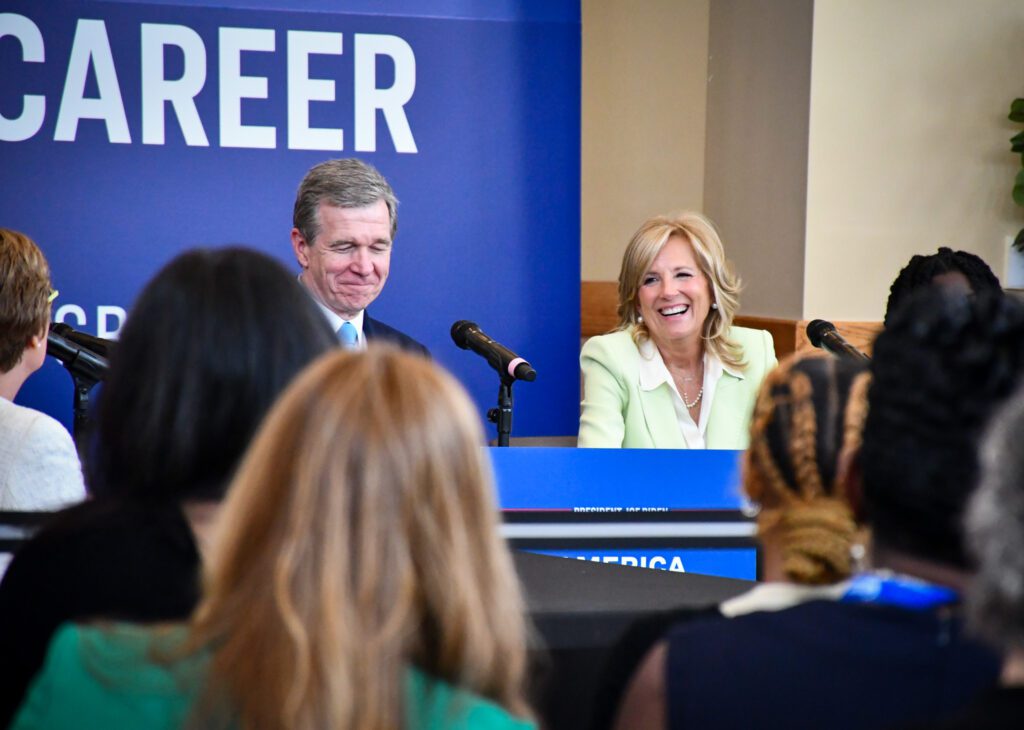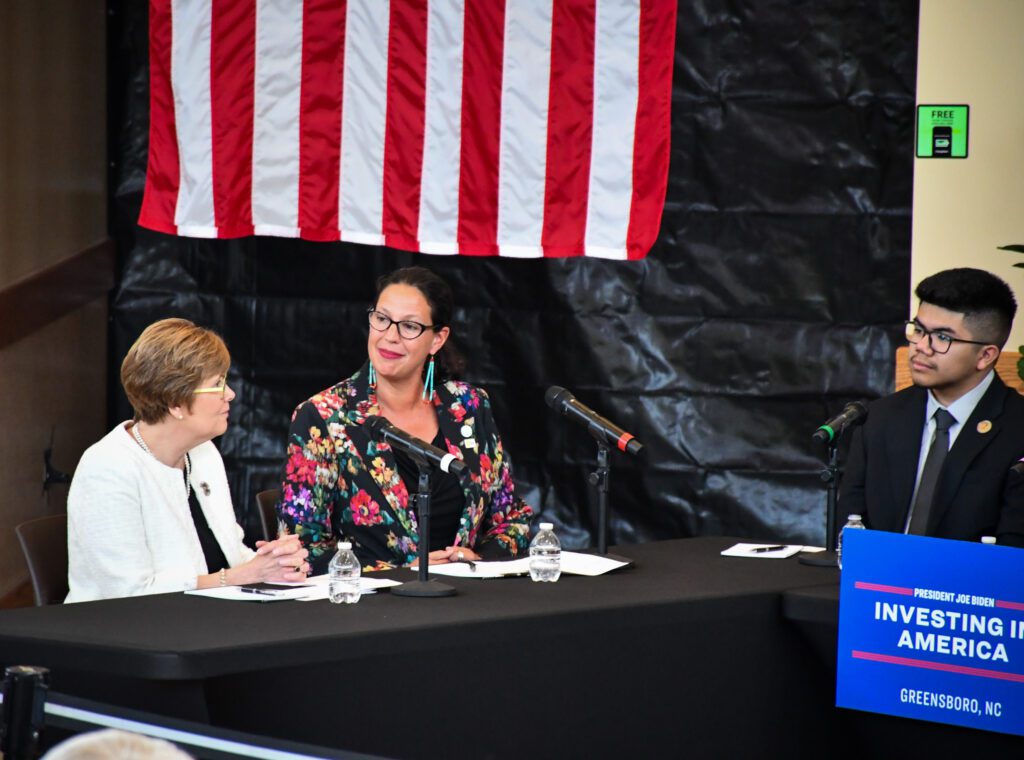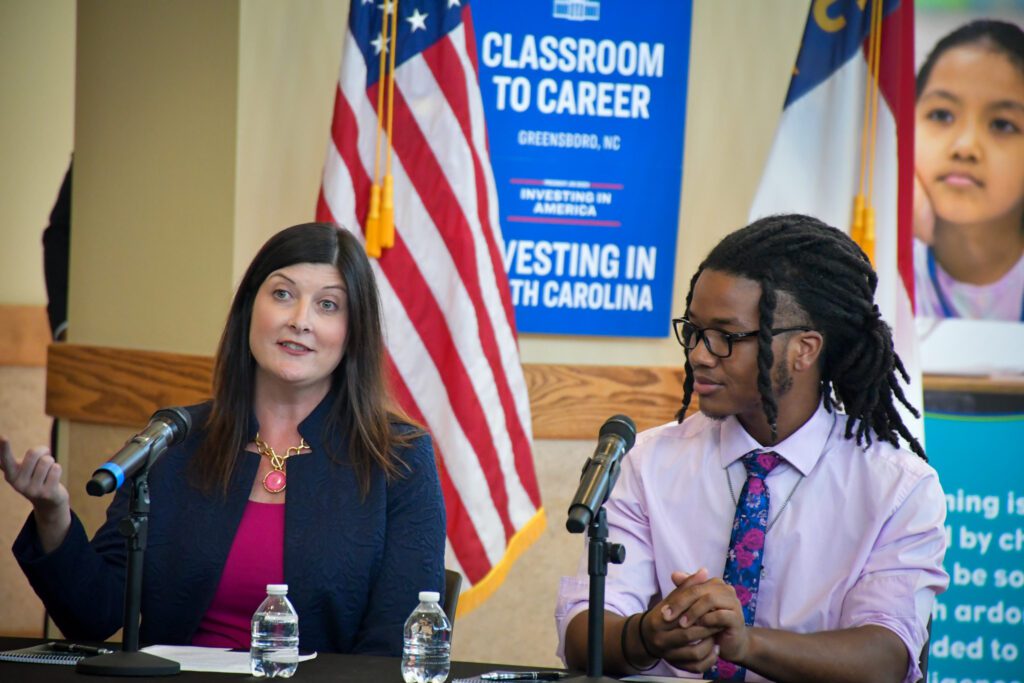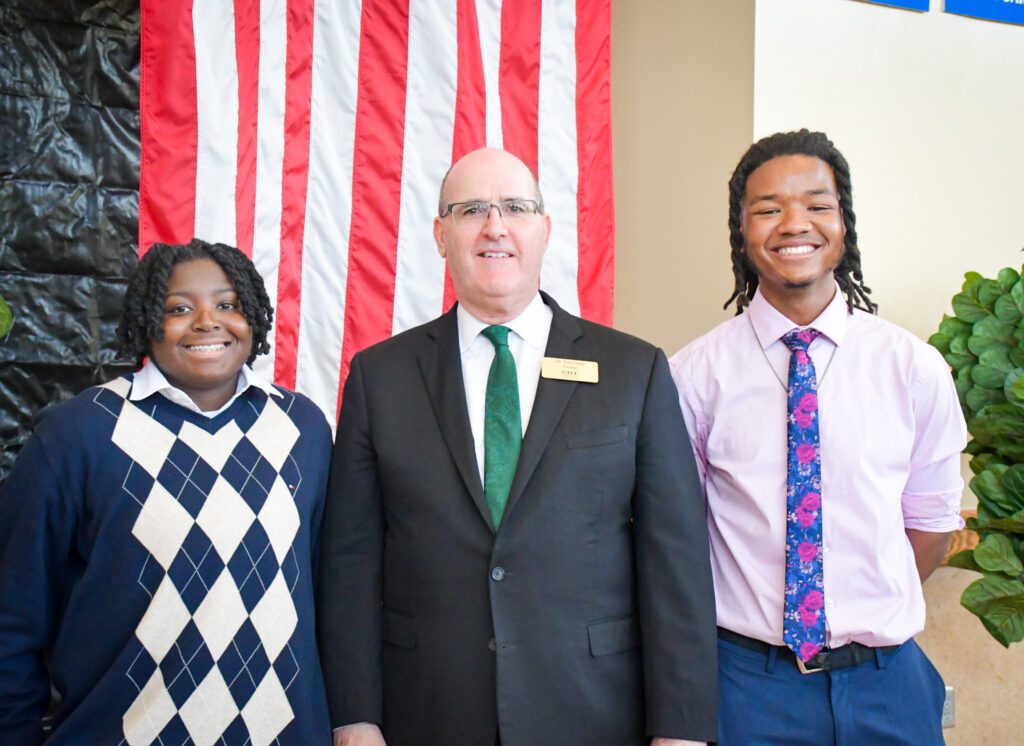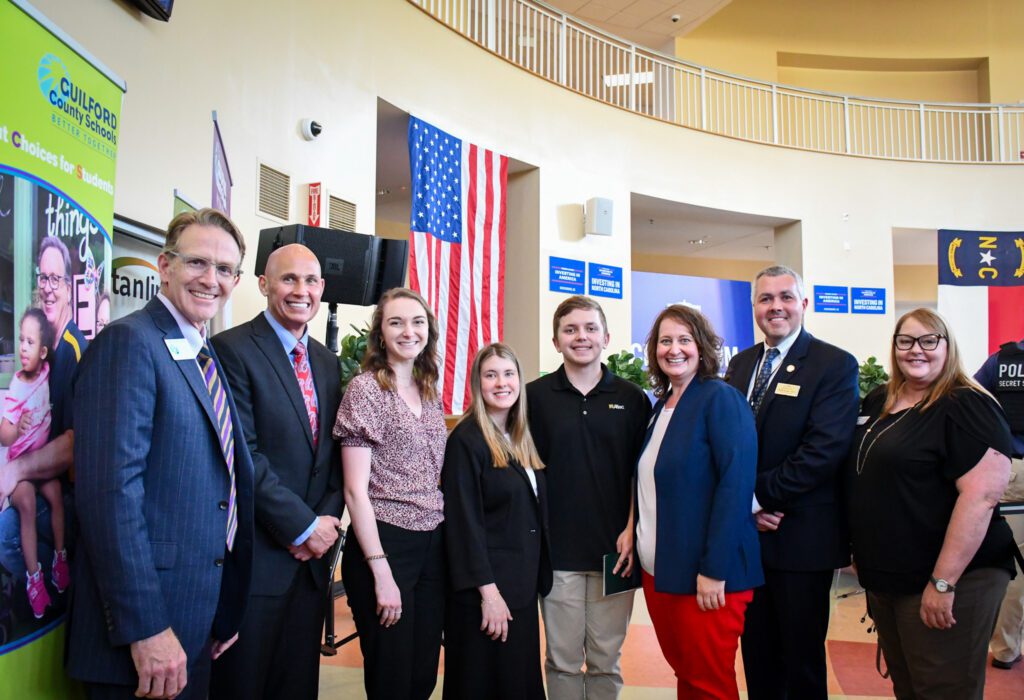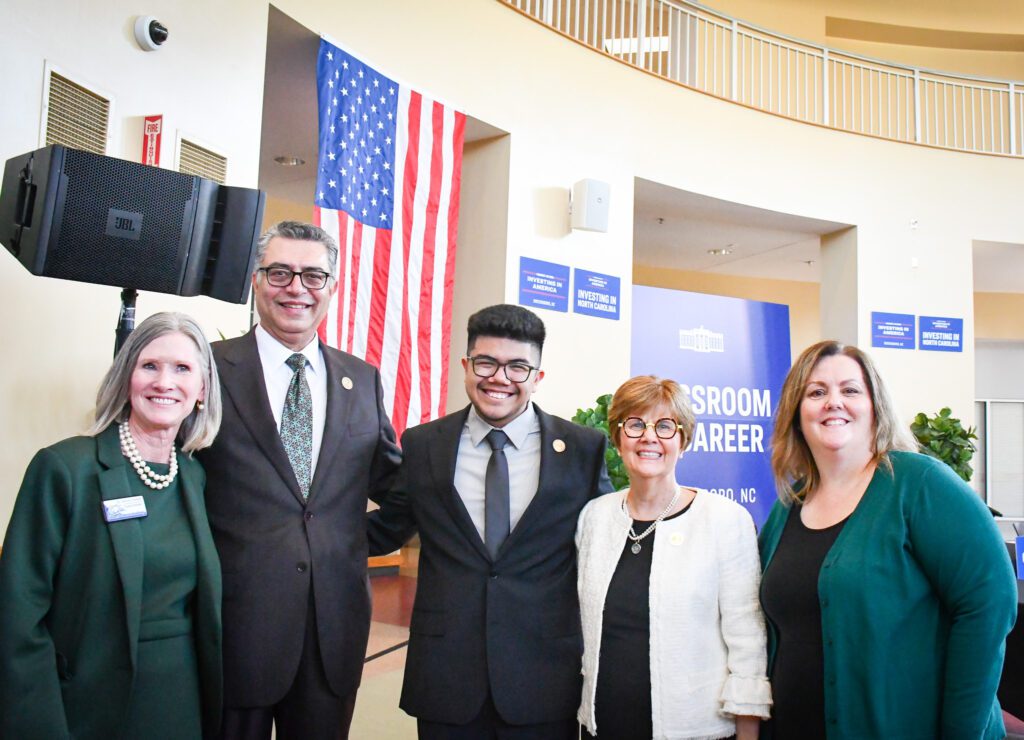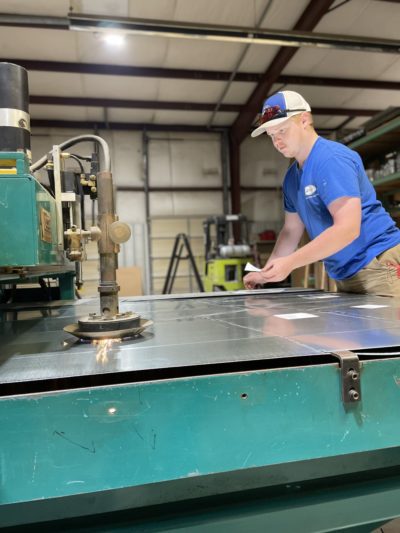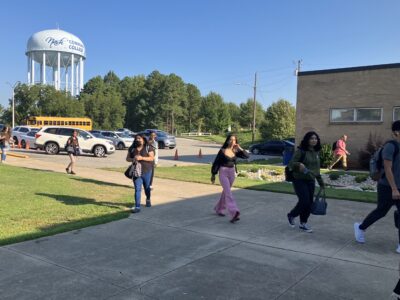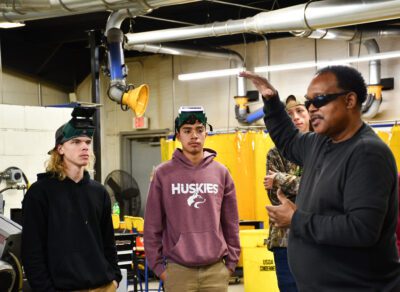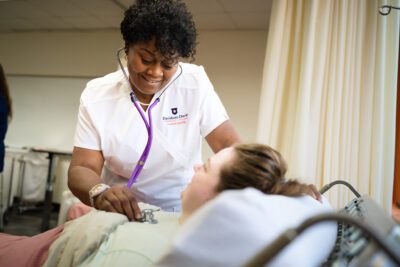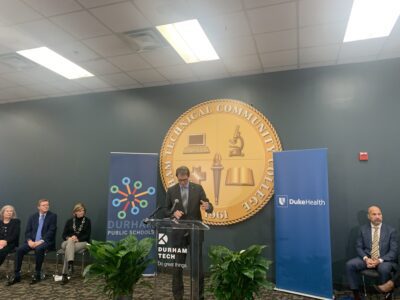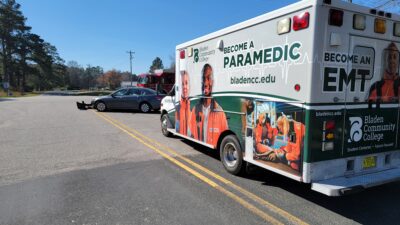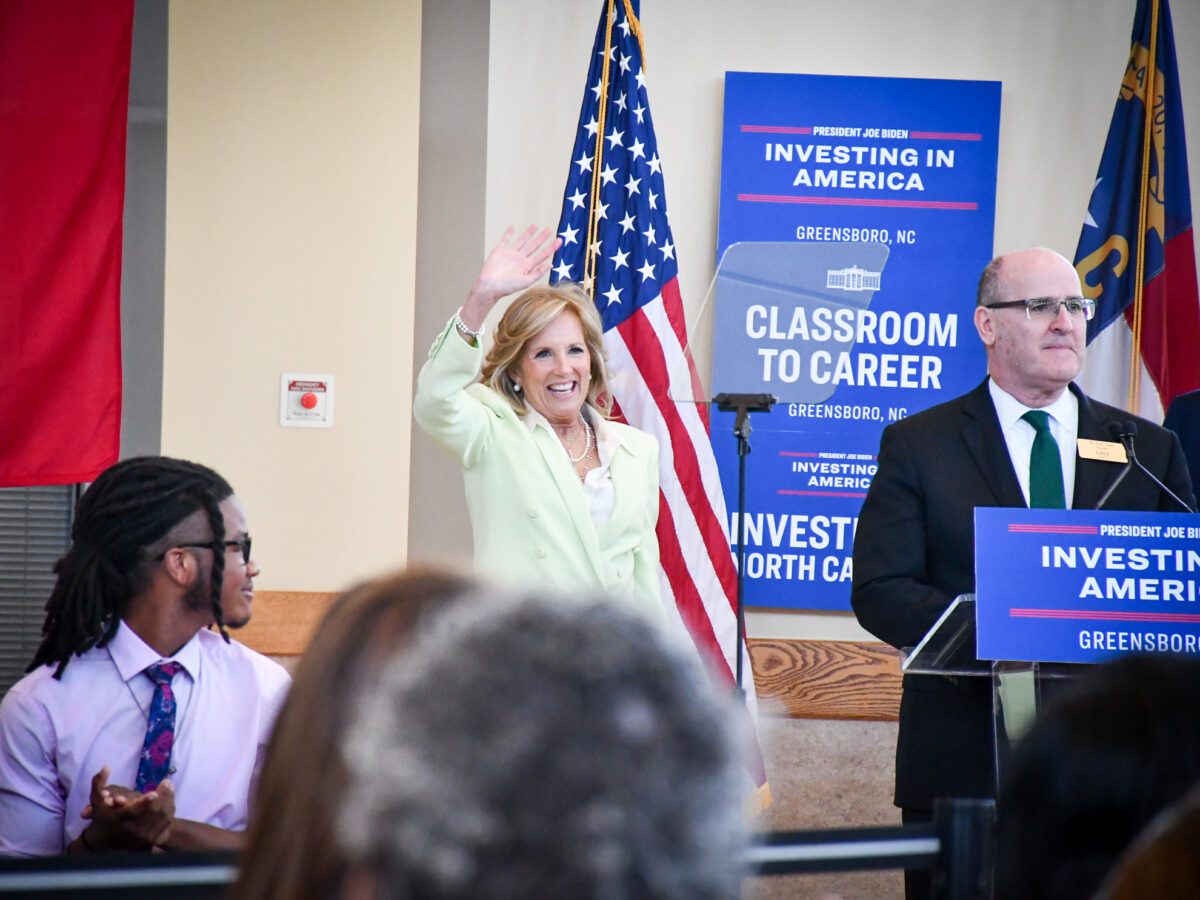

|
|
First Lady Dr. Jill Biden said North Carolina is a leader when it comes to providing opportunities for students to earn college credit and connect to careers while still in high school.
Dr. Biden visited North Carolina April 15 to discuss innovative learning programs, like dual enrollment, that are bridging gaps between the classroom and careers.
The visit is part of President Biden’s Investing in America Tour.
In his 2025 fiscal year budget request, the president allocated $7.2 billion to establish or expand programs that would allow students to earn postsecondary credits through career-connected dual enrollment while still in high school.
According to a statement from the Office of the First Lady, “The funds would be provided as matching dollars to states to initiate or expand efforts to spur greater enrollment in dual enrollment programs.”
The First Lady’s North Carolina visit included a stop at Pitt Community College where she met with educators and students to learn about the college’s dual enrollment efforts. Following the briefing, Dr. Biden visited Pitt’s biotechnology lab and automotive bay and heard from high school students working toward postsecondary credentials.
Dr. Biden then visited Guilford Technical Community College alongside Gov. Roy Cooper.
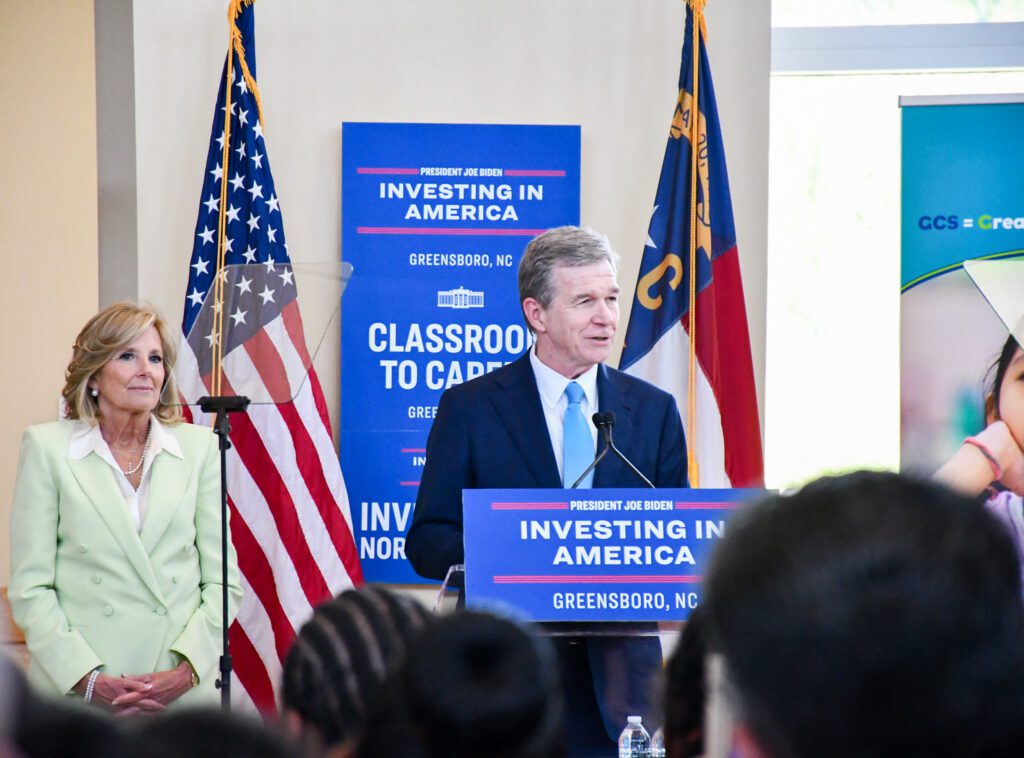

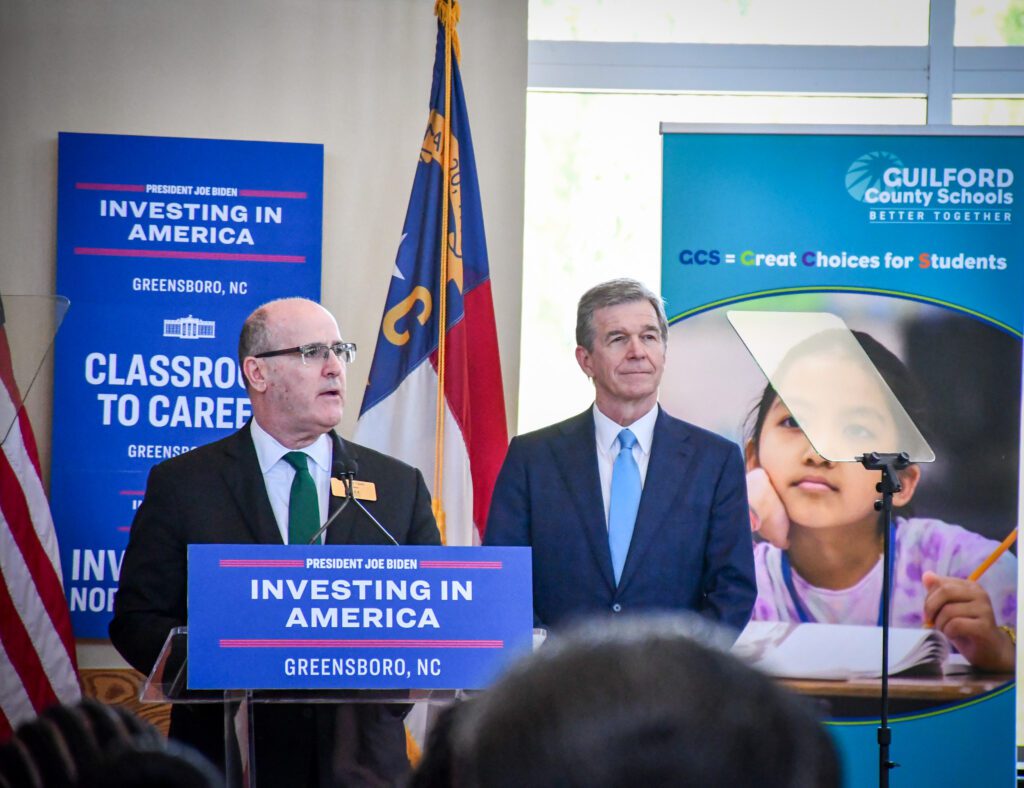

Before welcoming the First Lady to the podium, Gov. Cooper explained how the state’s dual enrollment program, Career and College Promise (CCP), is a tool to help high school students fast track their education and career goals.
“We have leveraged the power of our community colleges and our high schools to give more quality opportunities to young people sooner and at a lower cost.”
— Gov. Roy Cooper
“That’s why we’re all here today,” Dr Biden said. “North Carolina has been a leader in providing those (dual enrollment) opportunities and is exemplary in transforming high school into a place that prepares students for jobs.”
More than 78,000 students across North Carolina participated in CCP during the 2022-23 academic year.
A report to the General Assembly showed dual enrollment was up 12% from the previous year. The most notable increase was across the Career and Technical Education (CTE) pathway – jumping 21% from the last academic year. The CTE pathway is often aligned with high-skill and high-demand jobs, providing opportunities for students to learn a variety of academic and technical skills.
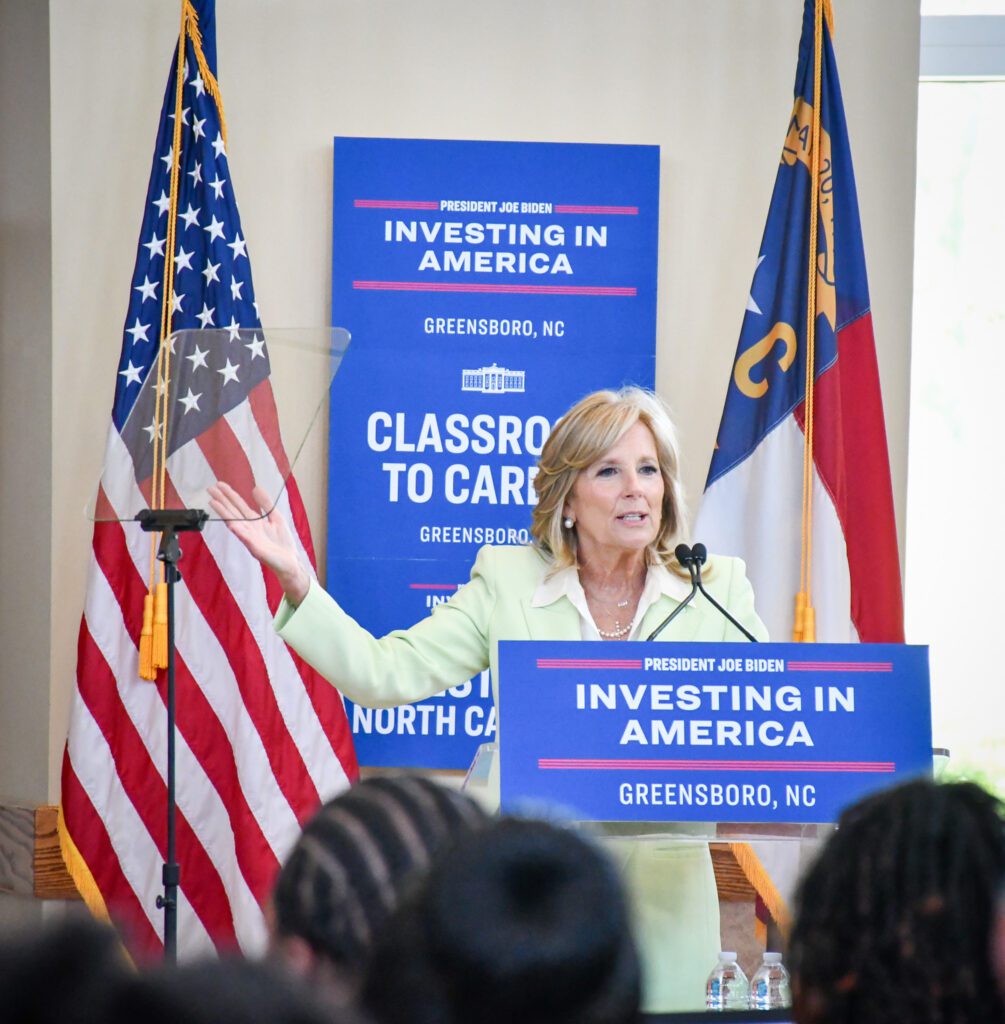

After her remarks, Dr. Biden and Gov. Cooper joined a panel of educators and dually enrolled high school students from three North Carolina community colleges to discuss their experiences with CCP.
Panelists highlighted how CCP is a chance to identify career interests and begin earning college credit that will help them in a future job. The four students on the panel are taking college courses aligned with various careers, including EMT certification, business administration, electrical engineering, manufacturing, and computer science.
The students said CCP has given them opportunities to explore careers and the confidence that they could succeed in a college setting.
“I can be successful in these types of environments,” said Giovanni Robinson, a dually-enrolled student at GTCC.
As for connecting students to careers, community colleges are doubling down on their efforts to support students by providing opportunities to become pre-apprentices.
Randolph Community College and Surry Community College, both represented on the panel, are among many of the state’s community colleges that are coordinating CCP in ways that meet the needs of industry in their communities.
Surry-Yadkin Works is one example of cross-sector partnerships that bring together K-12 districts, community colleges, and employers. It’s an approach that leverages dual enrollment and the state’s apprenticeship program to carve out pathways for students to earn college credit, income, and skilled training.
In her closing remarks, panel moderator Amy Loyd, assistant secretary for the Office of Career, Technical, and Adult Education at the U.S. Department of Education, thanked the audience and expressed gratitude for the chance to learn from the state.
“We really are delighted to learn from North Carolina and lift up the great work of your great state as a model and exemplar for all of our country to learn from as we’re thinking about how we create career pathways for all young people,” Loyd said.
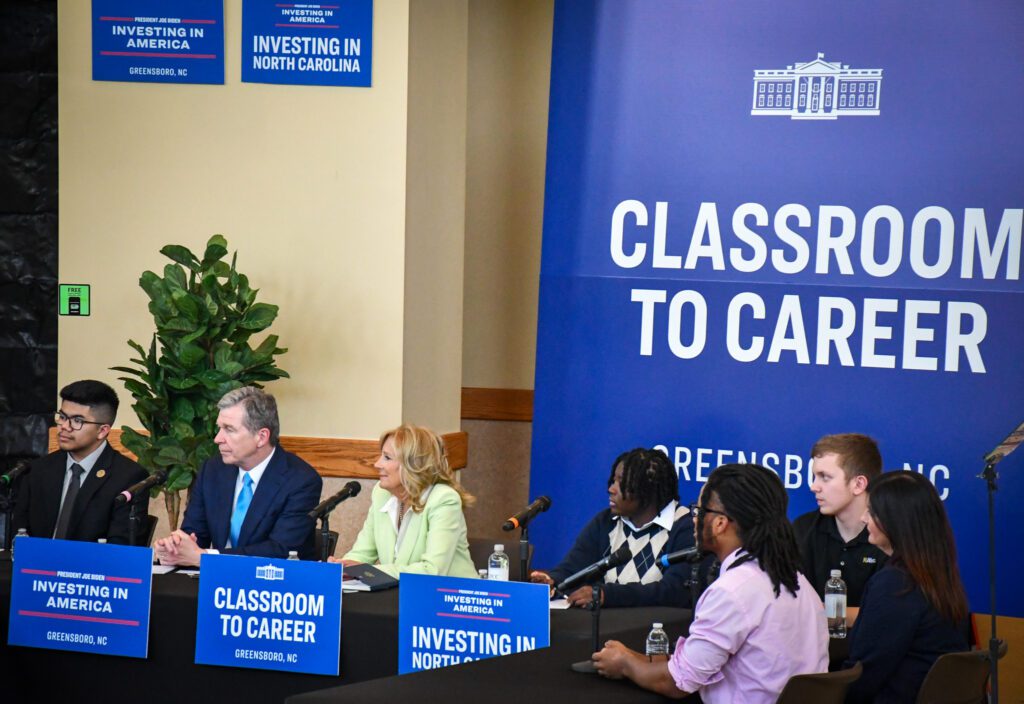

North Carolina’s Career and College Promise explained
Career and College Promise (CCP) is a dual enrollment program that allows high school students to take college courses tuition-free in North Carolina.
CCP includes three pathways: college transfer, career and technical education (CTE), and Cooperative Innovative High Schools (CIHS), which include early colleges. The pathways are structured and provide students opportunities to earn credits that often lead to certificates and associate degrees.
The state has long been a leader in dual enrollment programs — dating back over 30 years when the first iteration of the program launched.
When CCP was designed, it was done in such a way that students could earn a credential in less time than would normally be required. And regardless of their path – obtaining a degree, earning college transfer credits, or pursuing a credential to transition to the workforce – students would save time and money, both of which are linked to an increased likelihood of postsecondary attainment.
Research has consistently found that Career and College Promise benefits students, parents, and North Carolina as a whole.
A five-year study showed students who participated in CCP had higher high school graduation rates and higher postsecondary enrollment rates than those who did not. The study compared CCP students to a similar group of students who did not participate in CCP over seven years.
Students in college transfer or CTE pathways were 9% more likely to enroll in a North Carolina public college after high school. CIHS students were 27% more likely to enroll in a North Carolina public college after graduating.
The study also found that economically disadvantaged students and those from underrepresented racial and ethnic groups benefited most from CCP. You can read more about CCP below.
Photo highlights
